


|
|
||||||||||||||||
|
|
||||||||||||||||
|
|
|||
|
|
Marseille
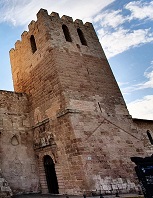 The church of St. Victor was dedicated by Pope Benedict IX in 1040 and underwent further rebuilding in 1200. Abbot Guillaume Grimoard enlarged the church following his appointment in 1361 and surrounded it with high crenelated walls. The present church, built in the 11th and 14th centuries, stands over an earlier crypt that houses early Christian sarcophagi. Between the 11th and 18th centuries it played an important role in Christianity’s development in the Mediterranean At one time the abbey held an impressive library, but this was broken up in the latter part of the 16th century. The dissolution of the Abbey was decreed by Pope Clement XII on 17 December 1739, and in 1794 the abbey was stripped of its treasures with many of its relics being destroyed. The gold and silver objects were melted down to make coins. During the 18th century the building itself was used as a warehouse to store straw and also as a prison and as a barracks. The building became a church again in the 19th century and in 1934 it was made into a minor basilica by Pope Pius XI. On entry to the church visitors see the nave with its high vaulted ceiling. 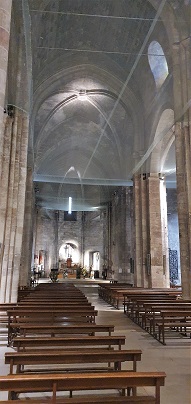 This has a number of rooms leading off including the chapel of the Holy Sacrament which contains a 5th century stone altar and a number of pictures. One picture located on the wall straight in front of the doorway, is easy to miss and is the monochrome face of Christ. 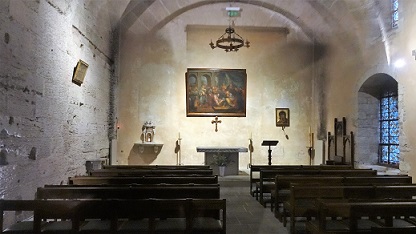 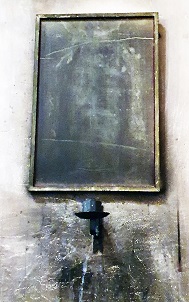 At the far end of the nave is the altar and either side of which are displays of church regalia. 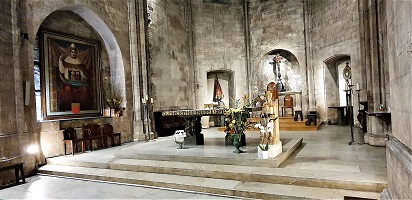 At the rear of the nave is access to the crypt via a set of stairs. Above the door is a 17th century pipe organ. 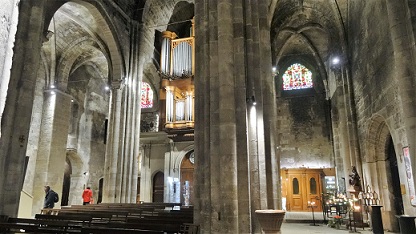 The building originally consisted of a central nave and two groin-vaulted aisles. In the 13th century the existing superstructure replaced the upper part and turned the remainder into crypts. The crypt contains several chapels and many early Christian tombs and sarcophagi. Located in the crypt is the Ancient Vestry which contains numerous sarcophagi, sculptures, and other works. 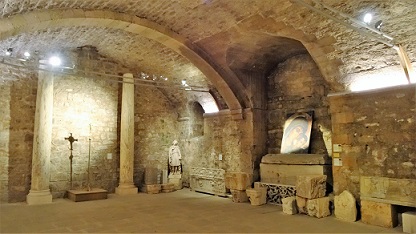 The Chapel of Isarn contains two sarcophagi. 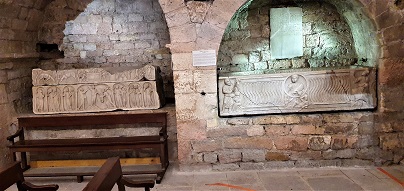 The Chapel of St Lazarus was cut out of the rock of an ancient quarry and consists of a small vestibule leading to a shine with three naves with four small columns. It is known to have been enlarged in the 13th and then again in the 17th century to allow for the altar. 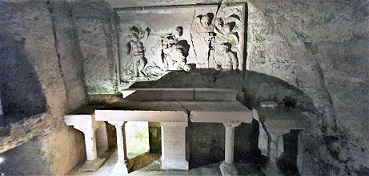 The Chapel of Our Lady of Confession contains the sarcophagus of Saint John Cassian who founded the Abbey. The chapel contains the statue of the Black Madonna which is made of polychrome wood adorned with gold. 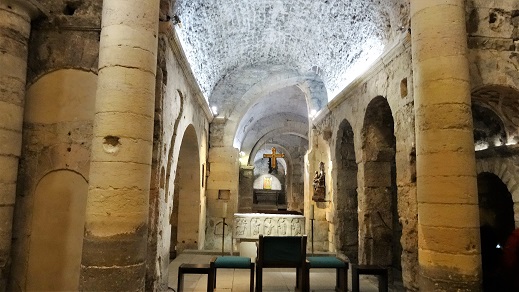 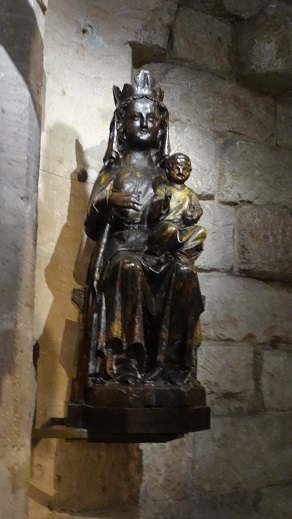 The crypt has undergone a number of restorations works over the years. Subsequent work has involved the replacement of support column in the crypt. 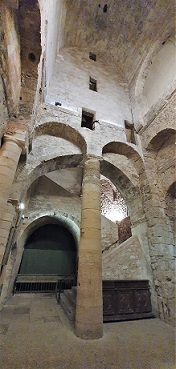 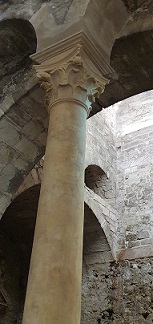 |
|
|
|
|
|||
All Photographs were taken by and are copyright of Ron Gatepain
| Site Map |
